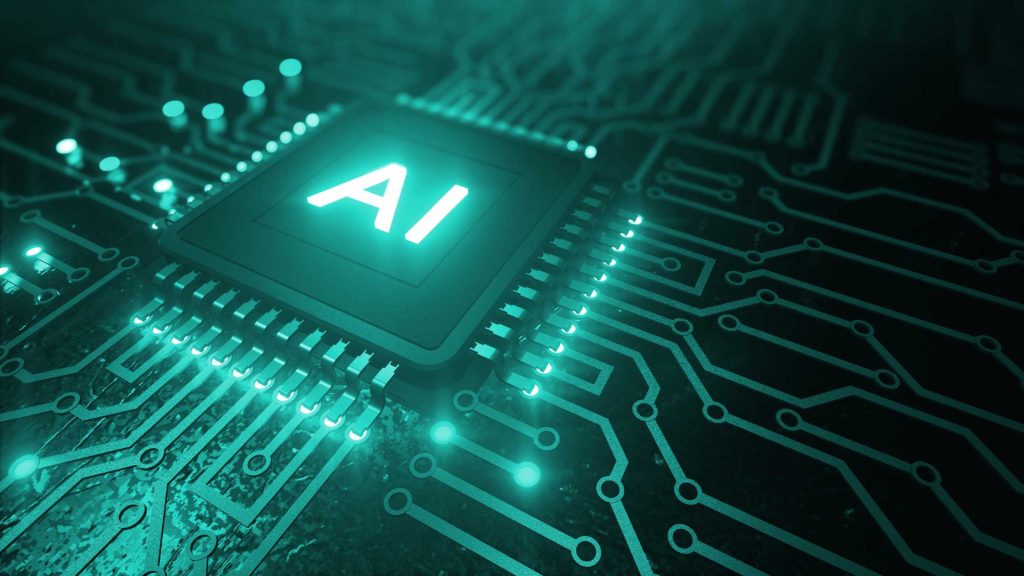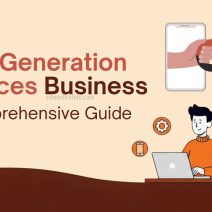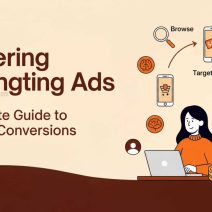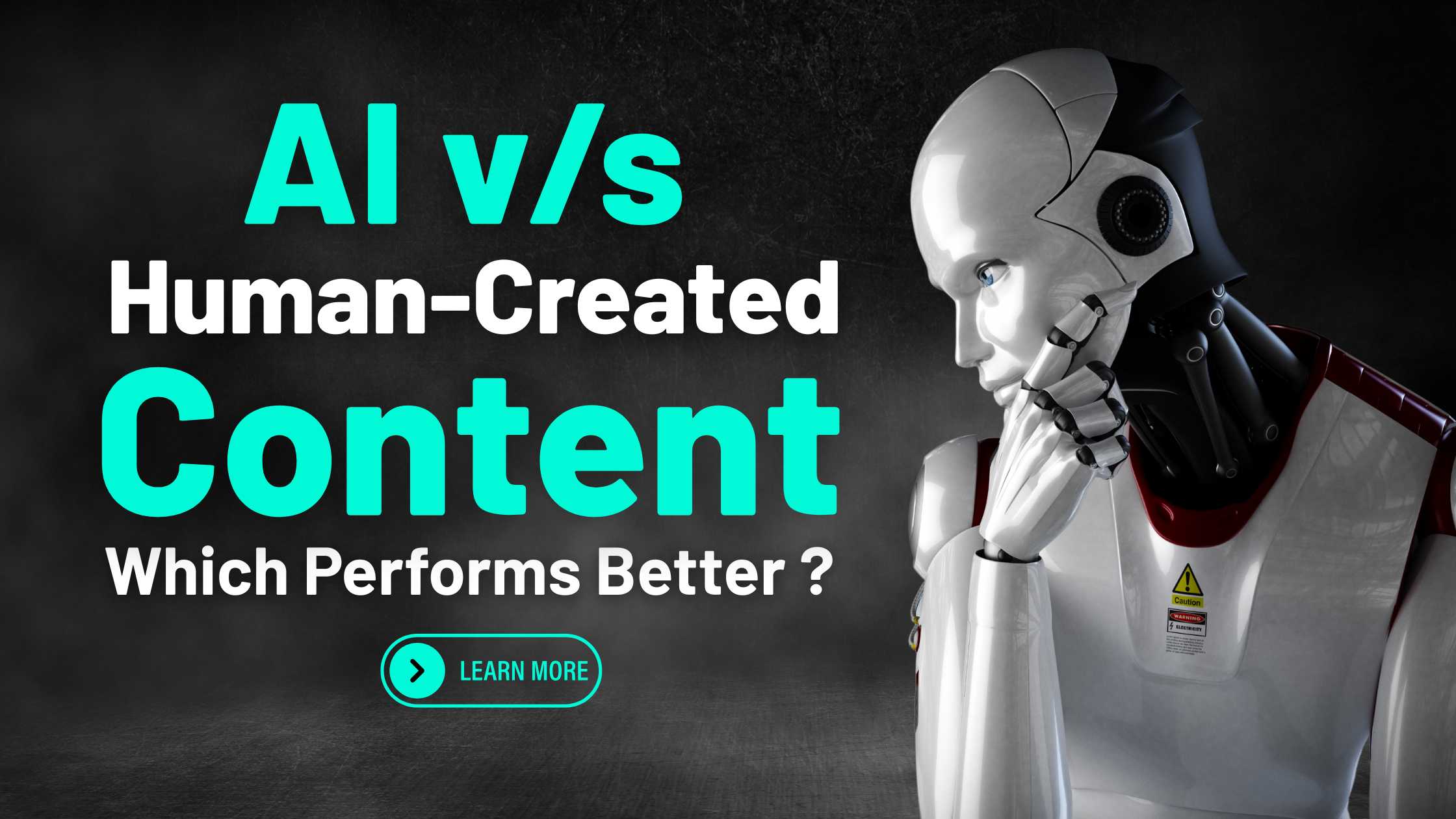AI vs Human-Created Content : In the ever-evolving landscape of content creation, 2025 stands as a pivotal year marked by the accelerating advancements in artificial intelligence and the rising expectations of digital audiences. The question “AI vs Human-Created Content – Which Performs Better?” isn’t just a technical debate anymore—it has real implications for marketers, business owners, publishers, and creators worldwide. In this comprehensive guide, we will explore the strengths, weaknesses, and key performance indicators of both AI-generated and human-created content to determine which delivers better results in today’s digital ecosystem.
Table of Contents
We’ll cover everything from content quality, SEO performance, reader engagement, cost-effectiveness, and ethical considerations to help you make informed content strategy decisions.
Understanding AI-Generated Content in 2025

AI-generated content refers to any textual, visual, or multimedia content produced by artificial intelligence tools using machine learning algorithms and large language models (LLMs). These tools, such as GPT-4.5 and beyond, can produce blog articles, social media posts, product descriptions, video scripts, and more.
By 2025, AI content creation tools have evolved significantly. They offer:
- Rapid content production at scale
- Multilingual output capabilities
- SEO-optimized writing
- Personalization based on data analytics
- Adaptive tones and writing styles
Tools like ChatGPT, Jasper, Writesonic, and Copy.ai are now mainstream, offering intuitive user interfaces, API integrations, and seamless CMS exports. With minimal human input, these platforms can churn out thousands of words in minutes.
The Strengths of AI-Generated Content
1. Speed and Scalability:
AI can generate content faster than any human. Brands needing large-scale content production—like product catalogs, FAQs, or news summaries—benefit immensely from AI tools.
2. Cost Efficiency:
For startups and small businesses, AI-generated content can cut down on content production costs, eliminating the need to hire full-time writers or agencies.
3. Data-Driven Optimization:
AI tools can use real-time keyword analysis, competitor benchmarking, and SERP intent matching to generate content that aligns perfectly with search engine algorithms.
Also Read : Low budget Digital Marketing Hacks
4. Consistency:
AI ensures a uniform tone, structure, and branding across all content types—essential for global brands.
5. 24/7 Availability:
Unlike human creators, AI doesn’t sleep, take breaks, or get creatively fatigued. It can produce round-the-clock content for businesses with global operations.
The Limitations of AI-Generated Content
1. Lack of Emotional Depth and Creativity:
AI still struggles with nuanced emotional intelligence, humor, storytelling, and authentic voice that resonates deeply with human audiences.
2. Contextual Inaccuracy and Hallucination:
Despite improvements, AI can still generate factual inaccuracies, outdated information, or hallucinate details—particularly in highly specialized fields.
3. Lack of Originality:
AI models rely on existing data. They may unintentionally replicate phrases or structures seen in training data, leading to generic or repetitive output.
4. SEO Pitfalls:
Search engines like Google are getting better at detecting low-value, AI-spun content. Without human refinement, such content may fail to rank—or even get penalized.
5. Ethical Concerns:
Plagiarism, misinformation, and lack of attribution in AI content raise red flags for brands that prioritize authenticity and trustworthiness.
The Strengths of Human-Created Content
1. Creativity and Emotional Resonance:
Human writers tap into cultural nuances, lived experiences, and unique perspectives—creating stories that inspire, motivate, and emotionally move audiences.
2. Strategic Insight:
Unlike AI, human creators can understand complex brand goals, audience psychology, and market shifts to create purposeful content with a vision.
3. Original Research and Thought Leadership:
Humans can conduct interviews, analyze data, and provide fresh insights—resulting in authoritative content that earns backlinks, shares, and citations.
4. Trust and Authenticity:
Content with a human author often feels more relatable and genuine. Readers trust voices with names and stories behind them.
5. Adaptability:
Human writers can pivot style, structure, and tone based on platform, audience, or campaign goal—something AI still struggles to do without detailed prompts.
The Limitations of Human-Created Content
1. Higher Costs:
Hiring skilled writers, editors, and strategists is costly. Quality content creation demands significant investment.
2. Time-Intensive:
Human-created content requires time—research, writing, editing, review cycles—which delays publishing speed.
3. Inconsistency:
Freelancers or teams may produce content with varying quality, tone, or grammar, requiring additional editing for consistency.
4. Fatigue and Burnout:
Content creators are prone to mental fatigue, creative blocks, and burnout—factors that affect productivity and consistency.
Key Performance Indicators: AI vs Human-Created Content

Let’s evaluate both types of content on performance metrics that matter most:
1. Search Engine Rankings (SEO Performance)
AI content, when optimized with the right tools, can rank well—especially for long-tail keywords and informational content. However, human content still tends to dominate for competitive keywords and evergreen articles due to originality and depth.
Winner: Tie (AI wins in volume; humans win in authority and quality)
2. Engagement Metrics (Time on Page, Bounce Rate, CTR)
Human-created content generally sees higher time-on-page and engagement. Readers appreciate unique storytelling, first-hand experience, and human insight.
Winner: Human-Created Content
3. Conversion Rate (Leads, Sales, Sign-Ups)
Content with emotional triggers, personalized storytelling, and persuasive call-to-actions often converts better—areas where human creators shine.
Winner: Human-Created Content
4. Cost Efficiency
AI content wins hands-down in terms of cost. One-time subscriptions or token-based payments make AI accessible to all business sizes.
Winner: AI-Generated Content
5. Production Speed
AI outpaces humans by a wide margin. Content that takes a human writer 4 hours to write can be produced in 5 minutes using AI.
Winner: AI-Generated Content
6. Quality Over Time
While AI content needs constant prompt refinement, human writers tend to improve over time as they understand audience needs better.
Winner: Human-Created Content
Industry-Specific Use Cases
1. E-Commerce:
AI is ideal for product descriptions, meta tags, and customer support responses. Human content excels in landing pages, brand stories, and video scripts.
2. News Media:
AI can help with summarizing reports, updating real-time headlines, and syndicating news. Humans are essential for investigative journalism and commentary.
3. SaaS and Tech:
AI handles technical documentation well. But human writers are better at tutorials, case studies, and feature announcements that require domain understanding.
4. Health and Finance:
Due to strict regulations and the need for factual accuracy, human-created content is safer and more trustworthy.
5. Education:
AI can create quizzes, summaries, and course outlines. Human educators still lead in teaching complex subjects with empathy and context.
Hybrid Content Creation – The Smart Middle Ground
Most leading content strategies in 2025 adopt a hybrid approach, where AI assists human creators rather than replacing them. Here’s how:
- AI drafts content; humans edit for tone, accuracy, and emotion.
- AI outlines blog structures; humans fill in expert insights.
- AI performs keyword research; humans build strategic content plans.
- AI repurposes long-form content into micro-content; humans add personalization.
This synergy allows businesses to scale content production without compromising on quality, authenticity, or engagement.
Tools Empowering AI + Human Collaboration
- SurferSEO + ChatGPT: For SEO-rich blog generation and optimization.
- Grammarly + Jasper AI: For writing enhancement and grammar correction.
- Copy.ai + Notion AI: For social content ideation and planning.
- Frase.io + Writer.com: For research-backed, high-ranking content briefs.
- Content at Scale + Human Editors: For producing 100s of SEO posts monthly.
Ethical and Legal Considerations in 2025
As AI content becomes more mainstream, ethical transparency becomes crucial.
- Disclosure: Inform users when content is AI-generated, especially in news, health, or financial contexts.
- Plagiarism: Use detection tools to ensure AI content doesn’t inadvertently copy existing works.
- Bias and Misinformation: AI may reflect societal biases or generate unverified claims—human review is essential.
- Data Privacy: AI trained on user-generated content must comply with data protection regulations like GDPR and DPDP (India).
Future Outlook – What Lies Ahead?
The future isn’t about AI vs humans—it’s about AI and humans together. As AI gets better at mimicking style and optimizing structure, human creators will shift focus toward originality, emotion, innovation, and strategy.
Emerging technologies like multimodal AI (combining text, voice, video), emotionally intelligent AI, and autonomous content agents will redefine content marketing. But the human touch—empathy, ethics, and experience—will remain irreplaceable.
AI vs Human-Created Content – Conclusion

In the grand debate of AI vs Human-Created Content in 2025, the answer isn’t black or white. Both bring unique strengths and cater to different business needs. For brands looking to scale rapidly with informational content, AI is a boon. For those prioritizing brand voice, emotional impact, and trust—human creators still lead the charge.
Buy Now : Professional Digital Marketing Course
The most effective strategy? Combine both. Let AI do the heavy lifting, and let humans do the heart-lifting.
Disclaimer: The information provided in this guide is for educational and strategic reference purposes only. Performance results of AI vs human content may vary based on industry, niche, tools used, and content goals. Always perform your own tests before deploying large-scale content strategies.
Keywords : AI vs Human-Created Content – AI vs Human-Created Content 2025 – AI vs Human-Created Content Guide








